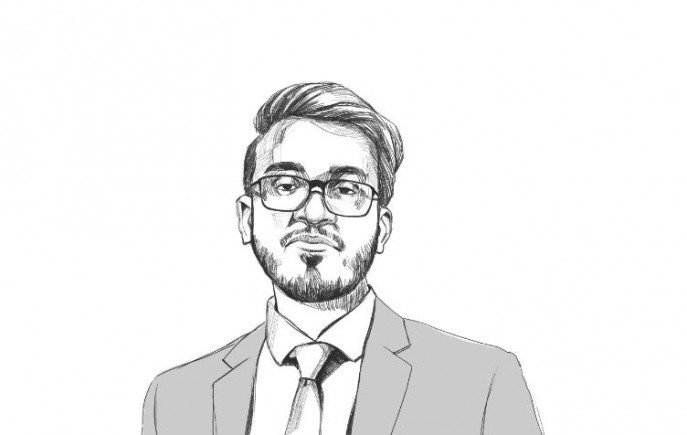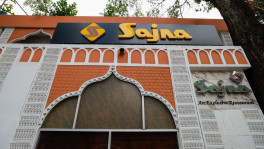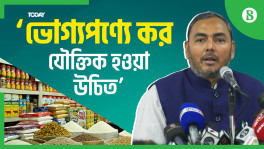The country needs to focus more on expansionary fiscal policies

Bangladesh was considered a test case of development immediately following independence and it was hypothesised at the time that if development was possible in Bangladesh then it would be possible in any country. Hence, Bangladesh was the test case for development. But over the last few decades the situation has changed quite significantly.
The country recorded a robust economic growth over the past decades which has been sustained in the backdrop of stable macroeconomic conditions, high RMG export and remittance earnings, decreasing poverty rate and gains in many social indicators. From an aid-receiving country the country has turned itself into a trade-dependent one. Bangladesh aspires to be an upper middle-income country by 2031 and a high-income country by 2041; the ambition is to bring down the poverty rate to less than 1%.
However, the outbreak of the coronavirus pandemic has put a brake on the impressive growth record of Bangladesh and the economy was impacted adversely on many fronts. Employment and poverty situation worsened, investment and trade also declined. The Centre for Policy Dialogue (CPD) carried out a nationally representative survey and found that more than 60% of the employed population had lost their jobs as the pandemic distorted the labor market. Employment elasticity with respect to GDP growth, which measures the percentage of employment generated from every percentage of GDP growth had already started to decline even before the pandemic. Employment took a large hit because of the pandemic and the health crisis made it worse. According to the BIGD-PPRC study of 2021, 3.4 crore people became 'new poor' amid the pandemic. Income inequality, measured by Palma ratio and Gini coefficient, has increased significantly amid the pandemic, depicting lower share of the marginalised groups in the national income.
The government has disbursed stimulus packages to help people and businesses to mitigate the impact of the pandemic. The central bank has adopted expansionary monetary policy to finance the stimulus packages of the government. The stimulus packages have been welcomed by all. But in many instances, there have been questions as regards timeliness, targeting and effectiveness of these packages, particularly in case of packages earmarked for the CSMEs.
It was expected that allocation of the FY 2021-22 budget will put emphasis on health, social safety net, agriculture and employment generation. But the budget was not radically different from general ones. One would have expected higher allocations for health, education and Social Safety Net programmes (SSNPs). True, the budget FY2022 has set aside a large share of expenditure for the development projects, a significant part for megaprojects. These megaprojects, once finished, will importantly contribute to the economy and are expected to reduce poverty, increase employment and investment opportunities. But these projects face frequent cost and time overruns due to lack of proper planning and deficit of good governance in their implementation process. This will hurt the economy.
Reforms of the tax system is a crying need as the country faces the problems of high tax gap, narrow tax base and weak tax structure. Domestic resource mobilisation will be accelerated if the needed reforms are carried out.
Bangladesh has been recommended by the UNCDP to graduate from the LDC group in 2026. This is a milestone in the country's development journey but this is certainly not the destination. There is no denying the fact that the country will also face new challenges in many sectors as it graduates from the LDC group. Bangladesh will no longer enjoy duty-free and quota-free access to the countries which offer such preferential market access. The country is expected to face the highest tariff rates (nearly 9%) among graduating LDCs. Moreover, TRIPS exemptions, which have been crucial for the development of the pharmaceutical industry in the country, will not be available once the country has graduated.
Exports need to be diversified. There remains significant unexplored export potentials both within the RMG sector as also outside the RMG sector. These need to be explored and taken advantage of. Signing of FTAs and Comprehensive Economic Partnership Agreements (CEPAs) will help the country get preferential treatment in major markets. But Bangladesh will also have to open up its market for this. Bangladesh will have to be able to comply with more stringent requirements in the areas of ensuring human and labour rights, good governance and environmental protection. This will not only help ensure the wellbeing of people and society but also help the country avail of such facilities as the EU's GSP+ scheme which grants full removal of tariffs on more than 66% tariff lines in the EU market.
Going forward, Bangladesh needs to focus on policies stimulating innovation and human capital accumulation. There should be increased healthcare, education and social welfare spending, and quality must be enhanced. Without quality education and a good healthcare system, human capital accumulation will not be accelerated. The cost of education should be decreased. More resources should be allocated for high-quality education and training. University-industry collaboration needs to be strengthened. Investment in research and development, advanced infrastructures, IT, 4IR and digital economy also need to be raised manifold.
As of now, declining remittance earnings, lower level of FDI and high inflationary pressure have become major concerns for the economy which will need to be addressed through raising quality of macroeconomic management.
The recent declining trend of remittance inflows is believed to be caused by re-emergence of the hundi market which took a backseat during the pandemic. Many of the migrant workers have lost their jobs and returned home with their savings. Steps should be taken to send more people to join the overseas jobs market. Proper training should be imparted to them to enhance their skills so that they can avail of well-paid jobs. The central bank should look for avenues to incentivise sending of remittance through formal channels. People can send remittance without submitting documents for sending an amount up to Tk5 lakh. The 2% cash incentive has also recently been raised to 2.5% from 1 January2022 which is a good move.
FDI to a great extent depends on the business environment, and the quality of infrastructure in a country. The business environment must be improved. According to the World Bank's latest doing business report, the country was ranked 168th out of 190 countries in 2020. High import tariffs also act as export taxes and avails anti-export bias in the economy. Alongside infrastructure investments, quality of infrastructure is of crucial importance. Good governance in the implementation of infrastructure projects will play a key role in this regard.
There is an inflationary pressure in the economy which the central bank has tried to address in its recent monetary policy statement. The central bank has been mopping up a significant amount of money from banks by issuing T-bills to contain inflationary pressure and keep the money market stable. Policy rates also need to be adjusted if needed to control the situation. There is also a need for timely exchange rate related steps to contain the increasing trend of inflation.
As Bangladesh is trying its best to overcome the adverse impacts of the pandemic, the country needs to focus more on expansionary fiscal policies and put emphasis on providing assistance to the people who are worst hit by the pandemic. Coordination with international financial partners will be needed to expand fiscal space and avail of additional resources for public expenditure in a manner that creates jobs, stimulate investment by private sector and leads to more equitable income distribution.

Muhammad Nafis Shahriar Farabi, Research Associate at Centre for Policy Dialogue (CPD). Email: [email protected]


 Keep updated, follow The Business Standard's Google news channel
Keep updated, follow The Business Standard's Google news channel
















